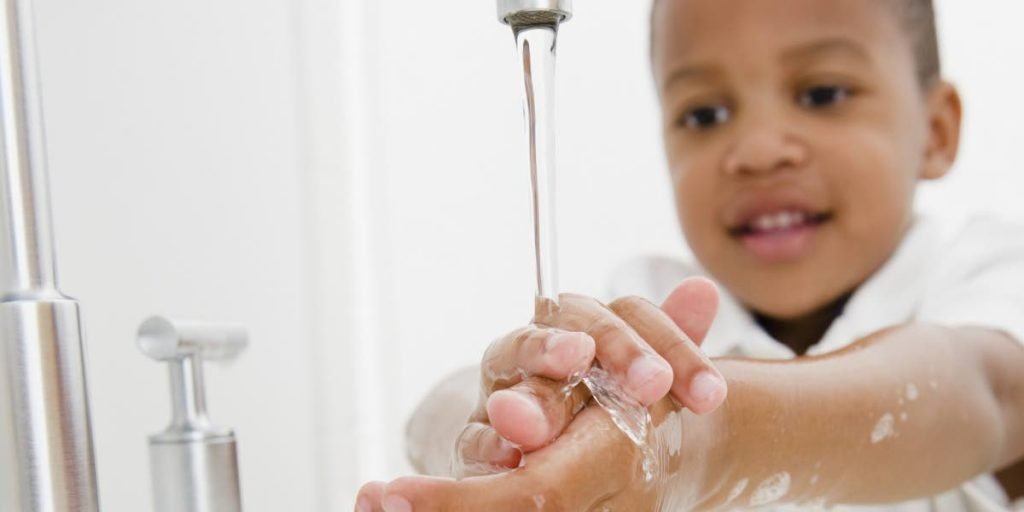Don’t scare children

It has landed! And the thing is we, as individuals, should have been as prepared as possible because we knew it was only a matter of time before covid19 squeezed its way past protective border measures into TT. Instead, we, as is a part of TT culture, waited until the announcement of confirmation of the first case of the virus before we rushed to clear the shelves of the groceries, pharmacies and anywhere that sells hand sanitisers, anti-bacterial wipes, bleach, soap, toilet paper, rice, sugar, flour, oil, canned foods, toilet seats, washing sinks, tarpaulin, drills...
I’m proud to say that I didn’t panic buy, not that I wasn’t tempted. But I resisted the temptation partly because I tried my best to filter out the misinformation that led so many people to spend many unnecessary hours standing in lines to pay for things they don’t necessarily need, and partly because my bank account balance will not allow it.
I have to admit, though, that as a parent I made a big faux pas by using the disease as a tool to scare my 11-year-old son into eating a bit healthier and to get him to up his game on his general hygiene practices.
“Eat all those veggies on your plate so you can boost your immune system. Because, you know, covid19,” or, “Cut those fingernails and wash your hands please. Remember, covid19,” probably topped the list of conversations we would have had for the past few weeks. And it worked, until it didn’t. You see, once Health Minister Terrence Deyalsingh confirmed the first case of the virus on Thursday afternoon, my little boy started to panic. For although he had been eating his fruits and veggies, washing his hands consistently, changing towels, showering and washing his hair more frequently than usual, and keeping his distance from people who display flu symptoms, the announcement triggered a deluge of tears.
“I don’t want to get covid19 and dieeeee,” he wailed, insisting that he either wore a face mask to school on Friday or he wasn’t going. A discussion on the matter revealed two things. Firstly, although I had been keeping him informed of the facts surrounding the disease, I had not taken the time to help him filter the misinformation that has been and is still circulating, especially by the social media-qualified health experts.
Secondly, my scare tactic method of getting him to take preventative measures may have been a bit much. Even though I was trying to protect him from the possibility of contracting the virus, I regret the manner in which I did it because the last thing I wanted was to see that look of fear on his little face. I give myself a pat on the back for my crisis management skills, though, because on Friday morning I dropped off a somewhat fearless and well-prepared boy at school, armed with his hand sanitiser, wipes, water and healthy lunch-kit contents. The mask was stored in his bag “only if you absolutely need it.”
So what exactly did I do to bring about this change? I spoke to him honestly about the situation, as npr.org suggested.
“Keep it simple, age-appropriate and fact-based. For example, don’t tell your child they won’t get covid19; you don’t know that. Instead, the CDC suggests telling children that, from what doctors have seen so far, most kids aren’t getting very sick. In fact, most people who’ve gotten covid19 haven’t gotten very sick. Only a small group have had serious problems,” something I had deliberately omitted before so the boy wouldn’t revert to his laxed state of healthy eating and good hygiene practices.
I also encouraged him to ask questions about things he may have heard about the virus so that I could immediately clear up any misinformation to which he may have been exposed. Which means I, the adult, had to have been keeping abreast of what was going on and of any new developments.
Preventative methods play a major role in containing any disease, and covid 19 is no different.
“Make sure they understand that hand-washing isn’t optional,” whether at home, at school, or elsewhere, npr.org recommends. “And that means showing them how to do it properly: using soap, warm water and time. Washing should take 20 seconds, which means you may need to help them find a song they can sing (in their heads, maybe twice)... Be sure they wash whenever they come in from outside, before eating, after coughing or sneezing or blowing their nose and, of course, after using the bathroom,” or use hand sanitiser with a high alcohol content when soap and water is not available. Remind them to cough or sneeze in tissue and discard it.
“For younger kids, it can’t hurt to remind them that nose-picking is a no-go, and that they should cough into their elbows. If you’re feeling ambitious, clip their fingernails frequently, as they provide a sneaky hiding spot for viruses. Hand lotion keeps skin comfy and unbroken, which also helps prevent the spread of infection.” And as difficult as it can be, remind them to try as much as possible to avoid touching their faces.
As an added measure, as parents and guardians we should prepare healthy meals at home as much as possible, wash things like school bags and reusable shopping bags as frequently as possible, sanitise the home and try to adopt a no-shoes-in-the-house policy.
And with the children at home this week due to a national shut down of all schools and universities, a trip to the grocery will most likely be inevitable for those of us who weren’t part of the panic buying group. Remember, let’s keep it safe.


Comments
"Don’t scare children"